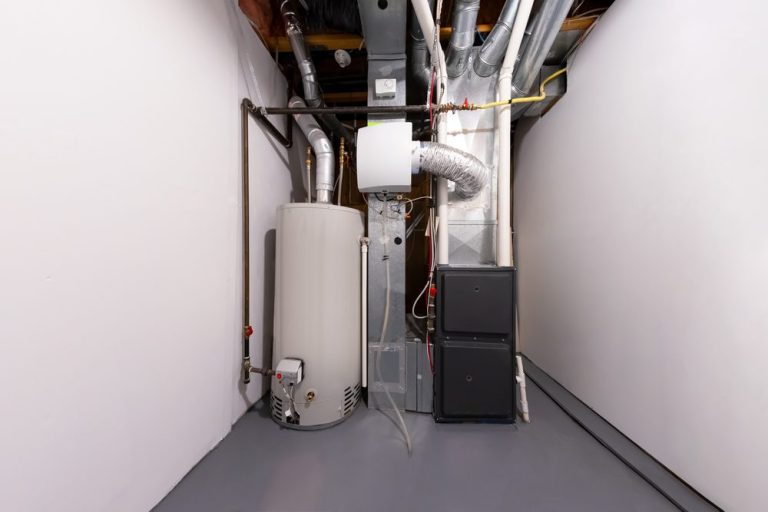Water heaters are one of the biggest energy users in your home, so when it’s time to replace an older model, it would be prudent to upgrade to one with greater energy efficiency that conserves more power while producing less greenhouse gas emissions.
High-efficiency models feature improved insulation and use sealed combustion technology to use less fuel and mechanisms to capture and reuse heat from exhaust gasses that would normally be vented outside.
After reading the blog, you can click here if you’d like to explore the advantages and disadvantages of tank and tankless water heaters.
1. Lower Utility Bills
Heating water for your home can be one of the largest energy drains. An energy-efficient model could significantly decrease utility costs.
Many models can deliver higher energy output with lower exhaust waste emissions, making them more eco-friendly. You could also opt for a tankless model that heats only when necessary to lower energy use and expenses.
Homeowners who purchase energy-efficient heaters may be eligible for significant tax rebates. This credit can offset some upfront costs and promote environmental resource management, which is particularly beneficial in regions with higher electricity rates.
2. Less Carbon Footprint
Heating water accounts for roughly 15 percent of an average home’s energy costs. High-efficiency heaters heat faster, use less energy, and reduce emissions by burning natural gas more efficiently.
Tankless and heat pump heaters also have a lower environmental impact since they do not consume energy when idle; only when an appliance calls for hot water do they draw power to heat.
Plug-in heat pump water heaters can improve grid reliability by shifting electricity usage during off-peak hours and decreasing methane emissions as uncombusted gas. They may also lower natural gas demand by reducing methane release as uncombusted gas.
3. Less Maintenance
Water heaters consume considerable energy. This is because they convert fuel to heat, maintain tank temperature and pipe hot water to various areas of your home. However, efficient technology helps lower energy usage significantly.
Also, efficient water heaters require less maintenance – they are insulated to minimize energy loss and are easier to repair than their less efficient counterparts.
Installation accuracy is of utmost importance; however, high-efficiency models have strict calibration requirements for their intake and exhaust venting system to ensure air is drawn inefficiently while the exhaust is expelled properly, necessitating professional installation to reduce carbon monoxide poisoning risks.
4. Increased Comfort
Energy-efficient appliances are key to saving money and decreasing carbon emissions. A water heater consumes the second most energy of all devices in a household; selecting an efficient model could significantly reduce both its consumption and utility bills.
High-efficiency water heaters use 10-50 percent less energy than traditional models due to improved conversion from the point into heat, better heat retention within storage tanks, and recovering some of the energy lost through cycling.
Limit your hot water usage further to reduce energy costs by taking shorter showers, lowering water temperatures, and operating laundry and dishwasher machines only during off-peak hours.
5. Longer Lifespan
At some point in every home’s lifetime, an old water heater must be upgraded or replaced, representing an opportunity to upgrade to an energy-efficient model.
Whether you rely on natural gas or liquid propane (LP), investing in an efficient water heater will save you money. Such models typically come equipped with the ENERGY STAR label, providing information about their energy rating – called Energy Factor or EF.
Higher Energy Factor (EF) ratings translate into greater savings potential. Heat pump water heaters (HPWHs) consume only half of the electricity consumed by traditional resistance or gas models and don’t release any emissions. In contrast, their ability to recirculate water and avoid overheating further lowers maintenance costs and saves you money!
6. Increased Value
Based on your residence, state tax incentives cover some or all of the cost of investing in an energy-efficient water heater for your business. Doing this can help your organization save energy while simultaneously cutting long-term expenses.
Traditional gas water heaters often use a pilot light to illuminate their tanks, using constant amounts of gas. Newer models use electric ignition instead to minimize energy use.
If your current water heater is nearing the end of its useful lifespan, upgrading to a high-efficiency model might be worthwhile.

